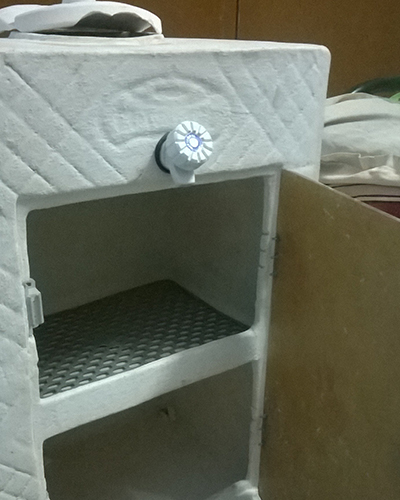Our researcher put theory into practice and made reduced carbon footprint a way of life
Before solar power became a buzzword, thanks to the plummeting electricity tariffs under the National Solar Mission, it was a part of a silent revolution at my home.
Placed elegantly on the top of the lid of a cylindrical structure made of translucent plastic, a 12-Watt solar photovoltaic (PV) module powered a small light emitting diode (LED) inside the container. The modern day solar lantern came into my household when my father ordered one over the Internet, one and a half decades ago. It provided fulfilling illumination and was a big relief over the Petromax. The irritating, eye-burning luminance of the burning bulb was replaced by the brighter, soothing light of the solar lantern.
Plagued by power cuts as we were in my part of the NCR, the solar lantern helped reduce the darkness in our home at a time when battery-inverter systems had not gained prominence. This was also my first experience with a non-conventional source of energy. It set me on a course where I kept experimenting with unconventional and energy-saving appliances and products.
Happy with my solar lantern experience, I also gifted one to a friend for her wedding, which she appreciated a lot. Later, I gifted others a solar power bank and a solar light, all purchased through e-commerce websites. I gifted the power bank to my cousin in Bikaner, and the solar light to his domestic help. She used to charge it on the roofs of the various houses she worked in through the day and would tie it on a wooden pole near her shanty at night for much-needed illumination.
Taking my quest further, during my last semester of college, I purchased an electric two-wheeler after lengthy discussions at home. The vehicle brand’s tagline, "I don’t drink and I don’t smoke", gave me the satisfaction of not having contributed to emissions, at least not while driving. (I have to concede though that it has a significant charging footprint).
Entering the fifth year of its operation this year, my two-wheeler has undergone one battery replacement and multiple instances of societal mockery. Some fellow commuters were even irritated by its silent presence, as the absence of a roaring engine took them by surprise on the road. A friend of mine, who has graduated to one car and one motorbike in five years, complains about how 'uncool' and slow my two-wheeler is. He is right on the second count. My low-end model can only go up to 25 km/h (with upgradation to 60 km/h possible) while the high-end models, costing over Rs.60,000, can go up to 70 km/h. In terms of mileage, once fully charged it can go up to a distance of 50 km. It can be fully-charged by six to eight hours of charging through a wall socket at my home. I can plug it in at night and go off to sleep as it automatically cuts off the supply once fully charged.

Sustainable cooling solutions too interested me a lot and accordingly I purchased a net-zero energy refrigerator called 'Mitticool', made of clay, when I was pursuing my PhD in Jaipur. My landlord questioned my choice, which was more expensive than a conventional mini-fridge, to which I only had to say, "No vapour compression please". The 20 °C gradient and the earthy feel it gave to my food made it an object of curiosity to visitors to my room. I have also been planning for a long time for a net-metered rooftop solar PV system at home, but the unreliable power grid held me back (in fact, the potential technical problems inspired my PhD research proposal).
My latest find in my quest for a carbon-neutral life is a roll of photodegradable plastic garbage bags that I found at a very unlikely place—a supermarket. I picked them for up for Rs. 50 a roll as soon as I realized what they were. These bags are supposed to degrade under sunlight and so will hopefully not keep adding to the burden of a landfill somewhere.
With great strides being made in both technology and the human role in environmental degradation, I hope I will not remain alone in my desire to put into practice methods to meet our needs in the modern world without smoking out our planet.

